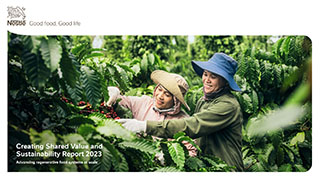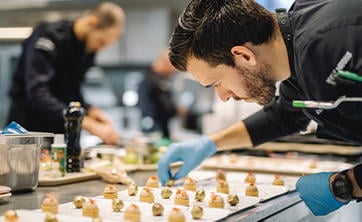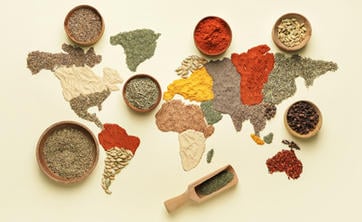Affordable nutrition

Across all life stages, food and good nutrition are fundamental to everyone’s health, well-being and quality of life.
However, many people around the world lack access to nutritionally adequate and affordable diets, which can lead to different forms of malnutrition. Creating a fair, global food system means making sure that everyone, everywhere can access nutritious food. Nestlé is working hard to make better nutrition affordable. That’s why we’re helping to close nutrient gaps by fortifying our products with essential micronutrients such as iron, iodine, zinc or by providing high-quality protein.
We aim to provide accessible and affordable nutrition to lower-income consumers with a focus on emerging countries. By leveraging our global footprint and expertise along the value chain, including in R&D, we can offer a wide range of products and services. These are designed to cater affordably to local consumer nutritional needs, tastes and formats, while delivering on our environmental targets.
Reaching more people with our affordable products
Ensuring fortified products are affordable
Addressing locally relevant micronutrient gaps with our fortified products is a key priority, and our efforts to innovate are continuous.
Following the launch of Bunyad Iron+ in Pakistan, in 2023, we also launched Nutri Rindes milk powder in Mexico using Iron+ technology, a new source of iron that is three times better absorbed by the body compared to other sources. Rollout in other countries will continue in 2024.
In India, we reviewed the micronutrient needs of certain Indian communities and adapted Maggi Masala-ae-Magic seasoning to their local needs, and are also working to help increase whole grain consumption.
We have added iron to the widely used Maggi Magic Sarap seasoning in the Philippines. In Nigeria, we launched a new affordable fortified dairy and plant blend, Nido Milk & Soya. By combining milk and locally sourced soya beans, this new blend contains essential nutrients such as protein and fiber and is a source of iron and calcium.
Improving access to nutrition and expertise
To enhance and share knowledge about nutrition, we partner with governments, universities and civil society organizations to create educational and social media campaigns. These are designed to improve families’ understanding of nutrition and to increase the uptake of the big four micronutrients: iron, iodine, vitamin A and zinc.
We are helping teachers educate children about good nutrition and active lifestyles through our school programs, and we are creating webinars and podcasts to engage adults.
Inspiring people to enjoy balanced diets

MyMenu IQTM is now available via 30 websites and measures the nutritional balance of a meal on a scale from 0 to 100 to help people combine foods for nutritional balance.
In the Philippines, our nutrition experts worked with the Food and Nutrition Research Institute (FNRI) to create an interactive online tool, the Tibay Calculator. The calculator offers parents valuable feedback on the nutritional value and diversity of their children’s diet. The tool is designed to be used to offer feedback on the diets of more than 500 000 children, and in turn, supporting their nutrition.
In Pakistan, where one in two children suffer from iron deficiency, our teams rolled out the Iron Calculator. This assesses dietary intake data to help educate parents about what to include in their children’s diet to boost their iron levels. Educational initiatives such as Nestlé for Healthier Kids help spread awareness and share knowledge about the importance of nutrition and healthy eating.
We work with social media influencers to inspire kids in the kitchen and use storytelling techniques to encourage them to eat more vegetables, using ingredients as characters. We help make drinking water more fun by showing how to infuse it with fruits.
In Central and West Africa, we run our Live Strong with Iron campaign that promotes iron-rich foods.
As part of our ambition to support healthy and balanced diets, we provide tasty and nutritious foods to our consumers via locally relevant micronutrient fortification at scale. Thanks to new affordable and accessible solutions, we also support increased consumption of protein and fiber.









